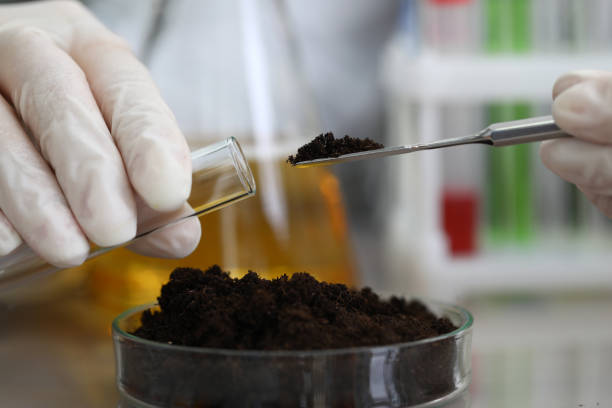
Composting is a natural process that transforms organic waste into a rich, soil-like material called compost. It’s a gardener’s best friend, providing essential nutrients that help plants thrive. If you’re looking to give your garden a boost, buying compost can be a great option. In this guide, we’ll explore what compost is, why it’s beneficial, and how to find the best compost for sale.
What is Compost?
Compost is the result of decomposed organic matter, such as kitchen scraps, leaves, and grass clippings. Over time, these materials break down into a dark, crumbly substance rich in nutrients like nitrogen, phosphorus, and potassium. Compost improves soil structure, enhances moisture retention, and supports beneficial microorganisms that contribute to plant health.
Why Buy Compost?
While it’s possible to make your own compost at home, it can be time-consuming and requires space. Buying compost is a convenient alternative, especially if you need a large quantity or want to get started right away. Commercial compost is often carefully formulated and tested, ensuring that it meets specific quality standards. This means you’re getting a product that’s ready to use and optimized for your garden’s needs.
Types of Compost Available for Sale
When shopping for compost, you’ll find several types available, each suited for different gardening needs:
- General-Purpose Compost: This is an all-around compost suitable for most garden applications. It’s often made from a mix of plant-based materials and can be used for everything from flower beds to vegetable gardens.
- Mushroom Compost: Made from the substrate used in mushroom farming, this compost is rich in organic matter and beneficial for improving soil structure. However, it can be high in salts, so it’s best used for plants that aren’t salt-sensitive.
- Worm Castings: Also known as vermicompost, worm castings are produced by earthworms digesting organic material. This type of compost is incredibly nutrient-dense and can be used as a soil conditioner or top dressing for plants.
- Manure-Based Compost: This compost is made from animal manure, usually from cows, horses, or chickens. It’s high in nutrients but should be well-aged or composted to avoid burning plants with excess nitrogen.
- Leaf Mold: This is compost made primarily from decomposed leaves. It’s not as nutrient-rich as other composts but is excellent for improving soil structure and water retention.
How to Choose the Right Compost
Selecting the right compost for your garden depends on several factors:
- Soil Type: Consider your existing soil. If it’s heavy clay, a compost that improves drainage, like leaf mold, might be best. For sandy soil, a nutrient-rich compost like manure-based compost can help retain moisture and add nutrients.
- Plant Needs: Different plants have different nutrient requirements. For example, leafy greens might benefit from a nitrogen-rich compost, while flowering plants may prefer a more balanced blend.
- Quality: Look for compost that is dark, crumbly, and smells earthy. Avoid compost that is still hot, smells sour, or contains large, undecomposed chunks, as this indicates it’s not fully matured.
- Source: Choose compost from reputable suppliers who test their products for contaminants and ensure that the composting process is complete. This reduces the risk of introducing pathogens or weeds into your garden.
Where to Buy Compost
Compost can be purchased from a variety of sources:
- Garden Centers and Nurseries: These places often carry a selection of composts, including specialty blends. The staff can also provide advice on which compost is best for your garden.
- Online Retailers: Many companies offer compost for sale online, delivering it directly to your door. This is a convenient option if you need a large quantity or specific type of compost.
- Local Farms: Some farms sell compost as a byproduct of their operations. This is a great way to support local agriculture while getting high-quality compost.
- Municipal Composting Programs: Many cities have composting programs where residents can purchase compost made from local yard waste. This is often more affordable and environmentally friendly.
Benefits of Using Compost
Using compost in your garden offers numerous benefits:
- Improved Soil Structure: Compost helps bind soil particles together, improving aeration and drainage in heavy soils while helping light soils retain moisture.
- Nutrient Supply: Compost provides a slow-release source of essential nutrients, reducing the need for chemical fertilizers.
- Enhanced Microbial Activity: Compost supports the growth of beneficial microbes that help plants absorb nutrients and protect against diseases.
- Sustainable Gardening: By using compost, you’re recycling organic waste and reducing your environmental impact.
Conclusion
Investing in compost is one of the best things you can do for your garden. Whether you’re growing vegetables, flowers, or shrubs, high-quality compost will enrich your soil, support healthy plant growth, and contribute to a thriving garden. When searching for compost for sale, consider your garden’s needs, the type of compost available, and where to buy it. With the right compost, your garden will flourish like never before.